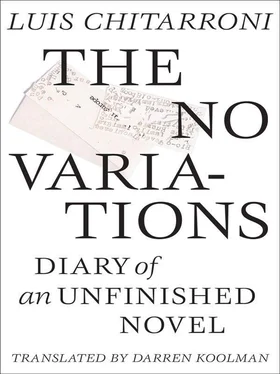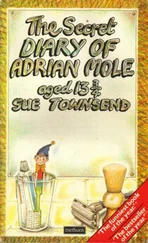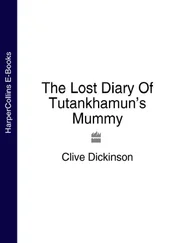We’d been friends for quite a while, so, at Marina’s request, I happily agreed to write the foreword to her book. Due to my interest in encyclopedic trivia, the more esoteric the better, I made reference to a seventh-century monk by the name of Cosmas, and his having written a book inspired by scripture, entitled Christian Topography , in which he denies the sphericity and oblateness of the earth, describing this heresy as a pagan superstition, and proposes instead a world shaped like a parallelogram, having one side twice the length of the other. Who knows where I find my factoids. I compared Cosmas’s opus, which I’d never seen, to Marina’s unavoidable [all-too-urgent, all-too-assertive] book … its exhausting pursuit of so much as a single idea. I wrote that Marina’s book, entitled The Estate of Heaven —in which there wasn’t a word that couldn’t have been dispensed with — was a groundbreaking work, for it described on the verso and recto of each page a twofold world, a contingent rather than a necessary world: a cosmogony very like the one described in the Topography ; that for Argentinian writers (having no choice but to implicate myself, since I’m a member of that tribe) Heaven would become an unavoidable point of reference. I also replied, in passing, to a comment made by Insúa Alvizur to the effect that our generation (the observation was a general one, but I took personal umbrage) would be condemned to merely aping our predecessors, to producing crude imitations of what others had done before us, if better … To making faces, as Insúa Alvizur put it: to putting on masks, not the least bit unsettling, because everyone’s seen them before. I used as many quotations as could reasonably be included in a foreword (for, as we used to say, in order to shed light, we have no option but to cite). Whatever space I had left was devoted to the ever-shrinking world of Argentinian literary criticism, into which I take credit for introducing, in this piece, a vastly important term: “vestigial.”
As soon as I sent in my contribution, I waited … waited, having sacrificed any last inclination toward fairness or sincerity, for Marina to call and say thanks. But she never did, so things went on as before.
All the characters from R.E.’s stories gather together in the end for the naming (of the story). What about the poems? A dilemma.
The stories of Francisco Eugenio Répide Stupía were written by a literary virtuoso in a style that betrays the recklessness of an apathetic plagiarist. Marina’s betray the same quality of listless intensity, the better to conceal all evidence of her poems having been written in a shitty apartment complex in a city she liked to call “a principality of proles.” Marina’s primary preoccupation seems to have been with choosing words that sounded nice (and she had no trouble finding them — how acoustics betray us!), without regard for their definitions or the context in which they were to be used. If anything redeems them — their only saving grace — it is a certain stubborn elegance, what Charles Tomlinson called the principle of gentility , a certain exaggerated sophistication that persists despite all the solecisms. In the eighties, or anyway the early eighties, Marina started out — like so many of us — translating the poems of John Ashbery for this or that poetry journal. And, you know, it’s still going on: for at least fifteen years now, no journal or review can call itself literary without printing at least one translation of a John Ashbery poem. Funny.
Marina’s English, fortified by her years in East Anglia, Urbana, and Ann Arbor, where the various jobs she’d held had only helped fortify her ennui, proved a useful tool in translating all that imprecision, suspicion, and vagueness into an even vaguer Spanish, worthy of the local literary magazines, who are wont to applaud these qualities, mistaking them for ambiguity and semantic richness. Luckily, I got to know her while she was still free of those parasites of prestige, while she was still a perfect, irresistible ape of idleness, the sort of person Shakespeare (on whom, like so many others, Marina thought herself an expert) warned us about. If pleonasm is the soul of offense, at least I know when to shut up. For dignity’s sake, if nothing else, I won’t bother to spell out what anyone can imagine. Today, early became too late.
Répide Stupía’s stories in Accents deal mainly with quotidian matters, trivialities, and yet no one seems to have noticed this. Peculiar: neither too French nor too Anglo-Saxon, neither too lyrical nor too narrative. The intention seems by and large to be the invocation — or evocation? — of an epic of dissimulation, a paean to the unheroic. Stupía’s aesthetic: a parsimonious late Baroque, like Faulkner’s Dixie Gongorism. There’s a sequence in his book entitled “Surnames,” among which is this mysterious poem: “The fewer words you seed by your design, / the more I’ll cede, distort to fit my own. / I clothe my thoughts in lies, but halt, recede / each time I think our thinking coincides. // I’ve sealed our pact without your worn insignia …” etc.
Kilgore Trout, the Abe Lincoln of fictional characters. Vonnegut.
Basilio Ugarte / Belisario Tregua
Répide Stupía: called Répide simply because it’s a name that’s stuck with me since my days at the National Conservatory of Music, and Stupía after the artist Eduardo, of course. Basilio reports someone once called him “Rápido escupía!” (“swiftly spat”)! Onomastic autonomy.
(Titles)
Accents
The Estate of Heaven
The name of Elena Siesta’s (Cora Estrugamou’s) father’s company: Ziggurat .
The book is called Accents because Répide is preoccupied with the idea of “dramatic meter.”
Other related organizations: Blamires, Haedo and Haynes (Hayms). Memi & Memi. Memi & Wuhl. Arrowsmith & Babbage. Babbage & Arrowsmith?
The law firm on Viamonte Street — Memi & Memi — employs someone’s little sister: a scribbler of bucolic poems in her schoolgirl penmanship, which, to the law firm’s embarrassment, have actually been published.
Marina Ipousteguy.
Friends: Judith, Honorata. Clarissa. The Death of Clarissa and Hudson.
At one of their homes, a touch-me-not, which bristled about you, feeling your presence, hemming you in. The first overtures of a carnivorous plant.
Perhaps a pitcher plant.
Marina. The way she speaks on the telephone. The way she laughs.
[Morecambe & Wise: their way of walking: like Robert Mitchum, John Wayne. Ladies’ day: every Wednesday at the National Palace with my mom and sister. The Puig-like gayness or queerness I should try to include — because … etc, and then we’ll have more culture (cf. Gerardo Deniz). A narrative. Norman Wisdom.]
Ways of looking at a blackbird. Ways of smoking in a literary salon.
What made me think of the day Inés died? I’d been up to her little roost many times, as had Dos, although I didn’t exactly approve of her work. I liked her, or I liked that she didn’t care as much about Nurlihrt as he liked to boast. No one (not even me in my foreword) ever mentions that she had a little mascot. In his diary, Nurlihrt wrote (with a nod to Chekhov) that it was a “paranoid Pomeranian.” As if he could tell the difference between a dachshund and a mastiff, the old hypocrite! My sister said it was actually a Chihuahua, and she’s known Inés a long time, having befriended her back in the old days of discotheques and pool halls. I myself think it was a Pekinese. Besides, Luini and I are the only contributors to the journal who know anything about dog breeds. The thing’s name, though, escapes me.
Читать дальше












